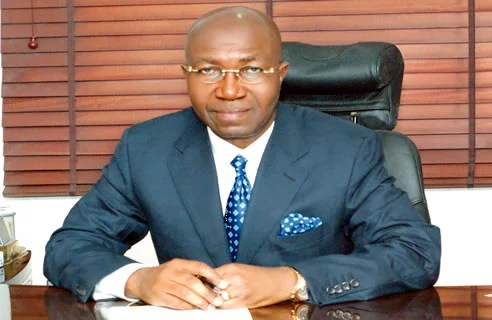Ecobank vs Otudeko: Lawyer writes CJN, accuses Olanipekun of abusing court process
Mr. Kunle Ogunba (SAN), counsel to Ecobank Plc in the alleged Honeywell debt recovery saga, has dragged the law firm of Wole Olanipekun & Co. before the Chief Justice of Nigeria (CJN) and the Body of Benchers. Ogunba urged the NJC & BoB to probe the law firm’s role in the matter of “Shares belonging […]

Mr. Kunle Ogunba (SAN), counsel to Ecobank Plc in the alleged Honeywell debt recovery saga, has dragged the law firm of Wole Olanipekun & Co. before the Chief Justice of Nigeria (CJN) and the Body of Benchers.
Ogunba urged the NJC & BoB to probe the law firm’s role in the matter of “Shares belonging to Honeywell Group Ltd, Honeywell Flour Mills Plc, Anchorage Ltd, Siloam Global Services Ltd and Dr. Oba Otudeko in FBN Holdings Plc or in any other entity”.
He accused Wole Olanipekun & Co of among others, “unprofessionalism/abuse of the final judgment of the Supreme Court” and “Persistent and constant abuse of process of court”.
Ogunba, in the July 18 letter, also addressed to the Managing Director, FBN Holdings Ltd., claimed the law firm filed a fresh action to relitigate the matter of Honeywell’s debt already settled by the Supreme Court.
He referenced an exchange of letters between his firm, Kunle Ogunba & Associates and Wole Olanipekun and & Co.
The SAN said: “We have just been served copy of a correspondence of the 14th instant from the firm of Wole Olanipekun & Co. in response to ours of the 12th instant as regards the above subject and we are now convinced beyond all previous doubts that the highly esteemed law firm of Wole Olanipekun & Co. will palpably stop at nothing to despoliate the final judgment of the Supreme Court in a dispute that raged for the better part of eight years as would be shown anon particularly in the light of the “fresh action” {in SUIT NO. FHC/L/CS/352/2023} it has filed at the Federal High Court, in Lagos to palpably relitigate the same subject matter.
“Clearly, the response of the firm of Wole Olanipekun & Co. has departed from its previous position that the Supreme Court could not have, and, indeed, did not grant an award claim in favour of the bank and has unilaterally codified a phantom unanimity of position that entity and personality who undoubtedly guaranteed the facilities are not parties before the Court and that a certain figure was never mentioned when the Supreme Court held that the “Debtor must pay all the debts that have accrued under the loan contract.
“Indeed, if that position is true for all intents and purposes, the question is why the necessity for a “fresh action” on behalf of the judgment debtors necessitating a counter-claim on our part?”
He argued that a careful analysis of the claim as presented in the “fresh action” shows “vividly that the new action at the lower court is a frontal attack on the Supreme Court judgment because while the Supreme Court has previously held (at page 39 of its judgment) that: ‘The Respondent being the owner of the money dues as debts from the Appellants can decide to waive its right to recover all the debts due to it from each Appellant. But it cannot be compelled to waive a contractual right.
“However, by the fresh action filed, the Appellants as Plaintiff now seek an order that the owner {the bank} can be so compelled contrary to the binding decision of the Supreme Court, the highest Court in the land which found as a matter of fact that as of the 17th day of January, 2014 the sum of N3,1116,731,061.07 remains outstanding which is more than the=N2b the Plaintiff admitted as due and owing.”
